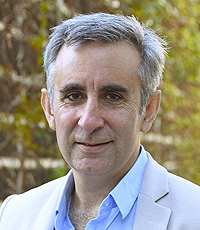PROJECT
The Center for Climate and Resilience Science CR2, with support from the Vice-Rectorate for Research and Development at the University of Chile, has organized a series of three presentations during 2021 to learn about international experience in economic evaluation of droughts and other extreme climate events. The central idea is to gain first-hand knowledge of impact assessment strategies for these types of phenomena, including their methodological aspects, scope, and limitations.
Each one-hour seminar features a presentation by a leading researcher in these areas, followed by a question, answer, and comment session. We believe that the experience gained in other places that have also suffered droughts is a relevant input for the national community to advance in evaluating the megadrought and help us better face the adaptation challenges posed by climate change.






